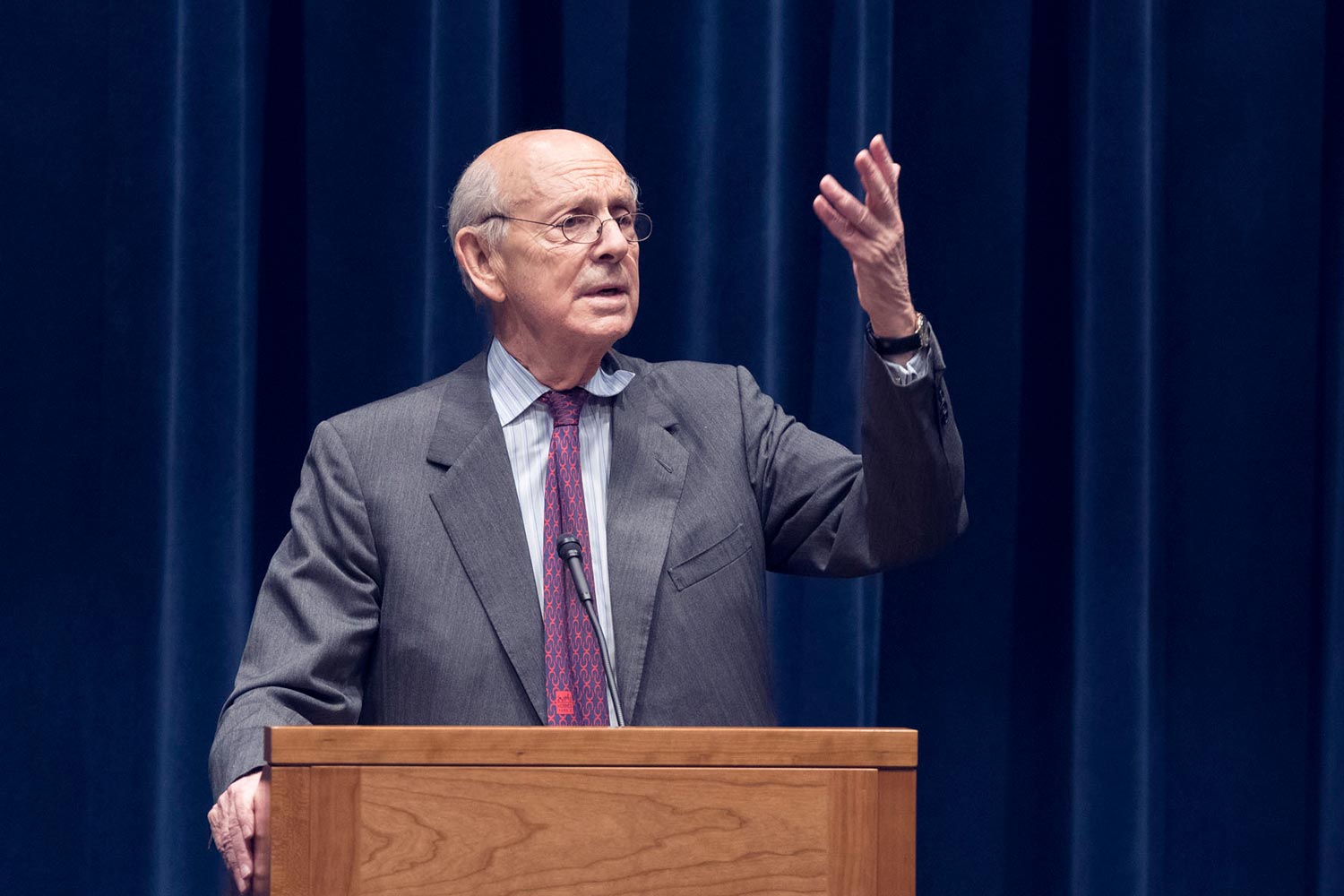U.S. Supreme Court Justice Stephen G. Breyer told students at the University of Virginia School of Law on Thursday that the world is changing and that the U.S. judiciary can’t afford to keep its head in the sand of its own shores.
“The world will go on without us,” Breyer said in his talk before a capacity audience in the Law School auditorium.
Breyer’s comments were largely based on his 2015 book, “The Court and the World: American Law and the New Global Realities.” The book examines the work of the Supreme Court in decisions with global implications and promotes the value of understanding how the world at large makes law and legal decisions.
He gave as one example U.S. antitrust cases involving multinational players.
“To decide a lot of these things, you know, there is no Supreme Court of the World,” Breyer said. “What happens if other countries decide the same principle?”
In addition to the legislatures and courts of foreign governments, he said, more than 2,000 international organizations exist to make rules and resolve disputes. The U.S. belongs to more than 800 of those organizations, he said.
Breyer’s judicial philosophy has often been viewed by the court’s observers as pragmatic, moving beyond a strict interpretation of the language of the Constitution. His approach, which he details in his 2005 book, “Active Liberty: Interpreting Our Democratic Constitution,” considers both original intent and practical consequences.
In his talk, he also looked at the tension between national security, which is outside of the Supreme Court’s purview, and individual rights. In the age of global terrorism, other countries have dealt with similar problems and their solutions are worthy of review, he said.
Regardless, he said, it’s important to make decisions based on sound reasoning – outside of the swell of fans and critics.
“It’s easy to write something that’s popular,” he said. “It’s not so easy to get out of the way.”
In a question-and-answer session that followed his remarks, Breyer maintained a sense of candor with students.
When asked if he ever looks back at his decisions and wishes he could change them, Breyer said second-guessing didn’t happen as much as one might think.
Another student asked if he ever reads the legal blogs, which have been known to assess his work. Breyer said he doesn’t as a rule, but has at times. He referenced commentary he once read on one of his patent law opinions: “Abortion, death penalty, nothing would have been as terrible as what I just wrote!”
Breyer, who is set to turn 80 in August, is currently the fifth-most-senior of the nine justices in terms of tenure. Justices are permitted to serve for life. President Bill Clinton nominated Breyer to the Supreme Court in May 1994, and he took his seat that Aug. 3.
Some of Breyer’s former law clerks, which include Dean Risa Goluboff and professors Rachel Harmon, Dan Ortiz and Farah Peterson, were on hand for the talk.
“The brilliance, the joy and the curiosity that Justice Breyer brings to everything he encounters is always on display,” Goluboff said in introductory remarks.
Breyer said he hopes at the end of the day that he will be remembered as having done a “reasonable” job.
Media Contact
Article Information
March 1, 2018
/content/us-supreme-court-justice-takes-world-uva-law-talk

